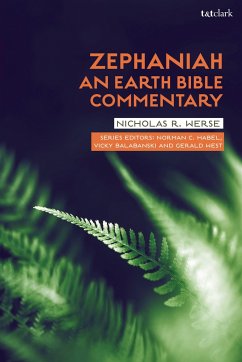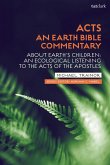With astute attention to Zephaniah's intertextual relationships with other biblical texts, Nicholas R. Werse explores the implications of Zephaniah as a book in perpetual conversation with other biblical cosmologies and conceptions of the human place in relationship with creation. Werse guides readers to critically examine Zephaniah's ancient worldview and subsequent legacy in dialog with the world's modern ecological crises. Werse argues that Zephaniah begins and ends with the land. It begins with the removal of all life from the land and ends with a proclamation returning the exiles to their ancestral home. Along this journey, all three chapters of Zephaniah systematically reverse language and imagery from Gen 1-11 and draw deeply from the language of earlier prophets to depict the 6th century BCE destruction of Jerusalem as nothing short of the unravelling of creation. While remaining suspicious of Zephaniah's distinctively androcentric worldview, Werse traces Zephaniah's rhetorical journey from the deconstruction of creation and the nations, to its proclamations of hope for the future.
Hinweis: Dieser Artikel kann nur an eine deutsche Lieferadresse ausgeliefert werden.
Hinweis: Dieser Artikel kann nur an eine deutsche Lieferadresse ausgeliefert werden.







